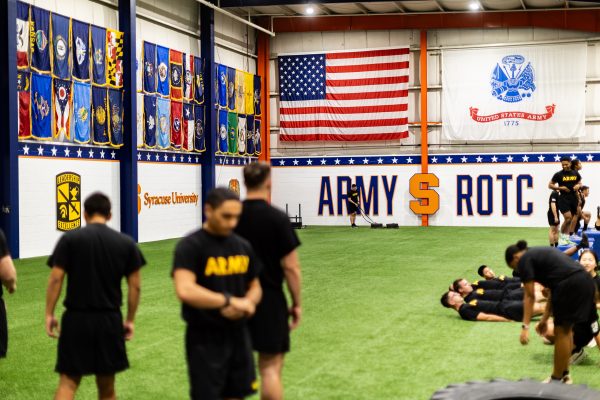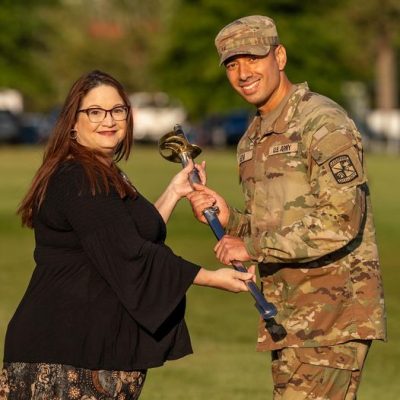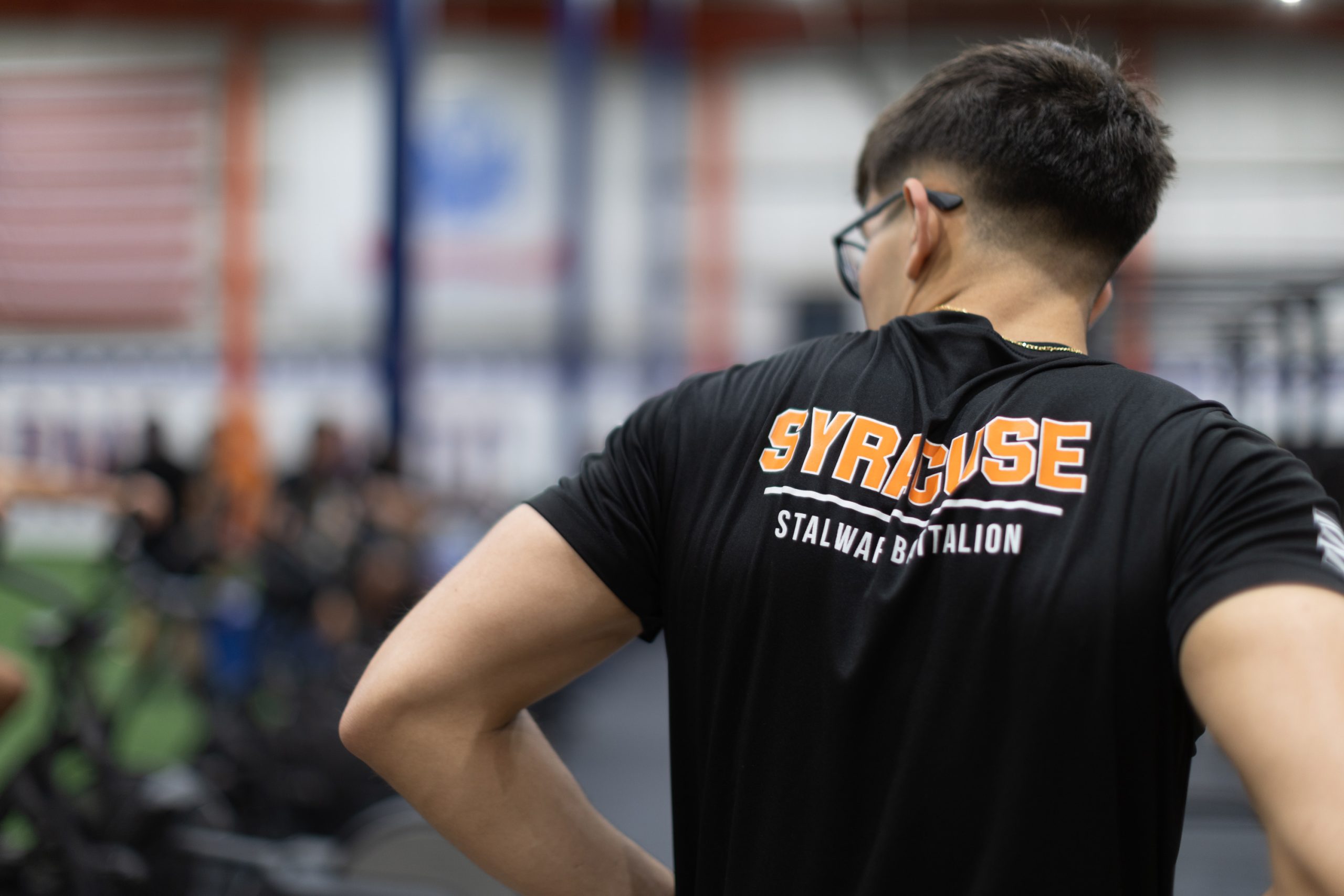Fitness
Building Leaders in the Stalwart Tactical Athlete Center

Earning a commission in the U.S. Army is a challenging process. Among the many attributes necessary to become a commissioned officer, physical fitness is a key element that can make or break a candidate’s potential military career.
In 2019, the U.S. Army implemented a newer, more rigorous physical fitness test to evaluate a soldier’s potential for physical performance in combat. Named the Army Combat Fitness Test (ACFT), the new test required specific equipment and training space that many ROTC detachments across the nation simply did not have readily available.
When Syracuse University learned about this potential setback, they set forth a plan to ensure their future soldiers were given the tools necessary to succeed.
“Physical fitness is critical for our soldiers to meet the demands of their profession in the most challenging of situations and, ultimately, to accomplish our mission,” says U.S. Army Lt.Col. Matthew Coyne, the ranking professor of military science at Syracuse University and detachment commander for the Stalwart Battalion. “Having a higher physical fitness score improves their ability to assess into the component of their choice, or the branch of their choice.”
By component or branch, Coyne is referring to the career field a soldier is assigned upon commissioning. Understanding the long-term impact that a fitness test could have on a cadet’s future career in the military, the University moved forward to turn a warehouse near Jamesville Avenue into the Stalwart Tactical Athlete Center, better known as the STAC.
U.S. Army ROTC cadets conducting unit physical training (Photo by Charlie Poag)
The results of this initiative were made clear over the summer of 2024 when cadets from Syracuse University excelled in comparison to other ROTC units from the region and across the nation. “Our cadets have achieved the highest Army combat fitness test average of all programs in the northeast. So out of 42 programs, they have the highest ACFT average, and they’re within the top three out of all programs in the United States,” says Coyne.

U.S. Army ROTC Cadet Byron Levi ’25 (right) achieved the highest ACFT score during summer training (Photo courtesy of the Stalwart Battalion)
Among those accolades, Syracuse University boasts the highest individual score during the 2024 Summer Cadet Training (CST) evolution. Cadet Byron Levi ’25, a senior in the Maxwell School of Citizenship and Public Affairs, credits the University’s support as being instrumental for his accomplishment.
“The STAC has been monumental in the physical and tactical preparation leading up to CST. Having a dedicated fitness facility that can be utilized allowed us to have a sharp advantage over most programs, not only in the northeastern region but nationwide,” says Levi. “Stalwart Battalion cadets pride ourselves on our commitment and pursuit of excellence, but our capacity to produce results and represent Syracuse University at the national level, especially during CST, would be limited without the support and resources we receive here.”
As Syracuse University’s prominence in the military and veteran communities has increased over the years, so has the interest to attend the University by the next generation of U.S. Army officers. The Stalwart Battalion, year over year, has seen a growing trend with its enrollment, and 2024 marked its highest enrollment of cadets since 2020 and the second highest in the last 20 years; the detachment is currently preparing 124 cadets for military service after graduation.
“Syracuse University has a historical commitment to supporting veterans in higher education, and since Chancellor Syverud’s 2014 inaugural address calling for this university to once again become the ‘Best Place for Veterans,’ we have seen a dramatic shift in the quality of our programs, services and support we can offer our military-connected students,” says retired U.S. Army Colonel Ron Novack, the executive director of Syracuse University’s Office of Veteran and Military Affairs. “Nowhere is that more evident than in the success of our ROTC programs. These young men and women are not only going to make incredible officers in the military, but they’re going forward as ambassadors of our University. We’re dedicated to ensuring that their time here with us is not only rewarding personally but impactful for their future careers as commissioned officers.”
Since the STAC opened, the ROTC staff and cadets have found multiple uses for the facility. In addition to much-needed storage space for the military equipment the detachment uses, the facility also offers a classroom and training space for cadets to meet and plan upcoming exercises and events, as well as rehearse small unit tactics in a controlled environment.
To learn more about the Syracuse University Army ROTC program, contact the Admissions and Recruiting Operations Officer Eric Schaertl at eshaert@syr.edu or 315.443.2462. To support Syracuse University’s initiatives to train the next generation of military leaders, please consider giving to the ROTC Professional Development Fund.

U.S. Army ROTC cadet prepares for a circuit course exercise (Photo by Charlie Poag)








